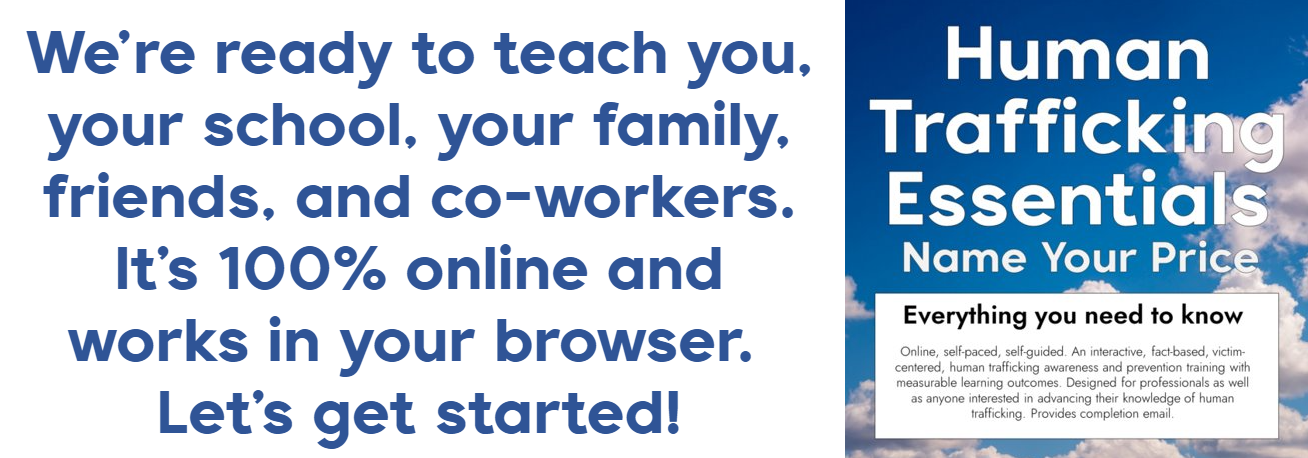For Virginia survivors, the scars of human trafficking may include a criminal record they can’t erase
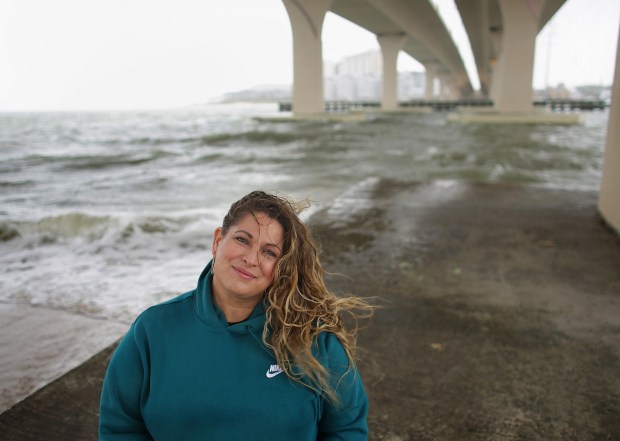
Jennifer Holmes desperately needed a place to live.
It was an awful feeling, standing in front of a landlord in Norfolk as her heart raced, praying he would overlook her criminal record.
“I had been turned down so many times,” she said. “I knew I could end up back on the streets.”
Holmes' mother was a sex trafficking victim in Portsmouth. When she was 11 years old, her mom knelt before her one day with a petrified look in her eyes and begged her daughter to do whatever the traffickers asked.
After that, rape became a regular part of her life.
But landlords and employers don't see the years Holmes spent as a human trafficking victim. They just see the litany of charges — including identity theft and drug possession — that came about as a result.
Virginia enacted a law two years ago allowing human trafficking survivors to petition to vacate criminal convictions for prostitution. But some advocates and lawmakers say it didn't go nearly far enough because trafficking victims are commonly forced to commit other crimes. Survivors with those convictions continue to be barred from housing and employment opportunities that could otherwise help them rebuild their lives. When they can't reintegrate into society, advocates say they're at risk of returning to traffickers.
Or worse.
“We have had survivors take their lives,” said Patrick McKenna, director of the Virginia Coalition Against Human Trafficking.
“Imagine you have child abuse in your background, then you get involved with trafficking and you're being raped every night and you develop a substance abuse problem. It's bad enough that you have to deal with that trauma, but then a criminal record?”
He paused.
“There's a real sense of hopelessness.”
___
‘A lack of understanding'
Federal law defines human trafficking as the “recruitment, harboring, transportation, provision or obtaining” of a person for the purposes of labor services or commercial sex acts through the use of “force, fraud or coercion.”
It's widely accepted that human trafficking data is unreliable because it often goes unreported. But the United Nations estimates that about 2.5 million people are being trafficked globally at any given time.
McKenna said the term conjures up images of kidnapping and international crime rings. But most of the cases the coalition comes across in Virginia are more insidious.
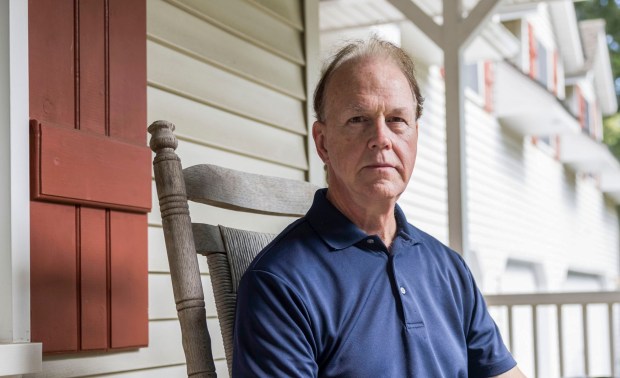
“I have survivors who were trafficked by family members,” said McKenna, whose coalition advocates at the statehouse for legislative policies that help trafficking survivors. “I think that is much more prevalent than people realize. Or you have a boyfriend who becomes a trusted figure or a ‘Romeo' pimp and then it goes south very quickly.”
A 2022 report from the Virginia Sex Trafficking Response Coordinator provides some data on the issue in the commonwealth. The report states five adults were arrested for human trafficking commercial sex acts in 2019, nine in 2020 and eleven in 2021.
It shows an overall decline in arrests for prostitution since 2012, from 540 that year to 85 arrests in 2021. Arrests for assisting or promoting prostitution, range from a high of 560 in 2014 to 129 in 2020. Prostitution is not necessarily tied to trafficking.
The General Assembly has seen a recent bipartisan effort to raise awareness about the issue.
Gov. Glenn Youngkin signed several such bills into law last year, including one from Del. Shelly Simonds (D-Newport News) requiring hotel employees to undergo training to recognize signs of human trafficking and a similar measure from Del. Anne Ferrell Tata (R-Virginia Beach) requiring training for medical professions.
“This is not a Republican or Democrat issue, it's a human rights issue that we all know affects every community, every race, every socio-economic group and it's on the rise globally,” Youngkin said in a previous statement.
The Virginia Commission on Human Trafficking Prevention and Survivor Support, formed last year by the governor, also issued a report this year with a series of recommendations on reducing trafficking — it urged tougher penalties for traffickers and also recommended more funding for victims.
Virginia, however, has lagged when it comes to offering conviction relief: A report from the Virginia Crime Commission in 2020 noted the commonwealth was one of only five states that offered no conviction relief for trafficking survivors.
But it's not for lack of trying. Legislators had brought forth at least six bills since 2013 that would offer various types of conviction relief to survivors, including expungement proposals and so-called proactive relief measures that would prohibit minors from being charged with prostitution. But the measures died in the House Courts of Justice Committee.
Del. Karrie Delaney introduced the vacatur bill that passed in 2021 and was signed into law by then-Gov. Ralph Northam. Two delegates in Hampton Roads — Simonds and Virginia Beach Democrat Kelly Convirs-Fowler — served as cosponsors.
Vacatur laws go a step beyond expungement or even gubernatorial pardons; rather than only removing or forgiving a record, it acknowledges a person was not guilty of the offense.
Delaney credits a growing awareness around human trafficking issues with the measure's passage. But she agrees with advocates who say it wasn't enough.
“When you are forced into trafficking, you are also often engaging in other criminal activities (besides prostitution) because of your status as a trafficking victim,” said Delaney, D-Centreville. “That may be part of the scheme the trafficker has going.”
Delaney, however, didn't think her bill would pass if it included anything other than prostitution-related offenses. When asked why, she pointed to the committee's track record.
“I think it is an education issue,” she said. “There is a lack of understanding of what it is like when someone is trafficked and what their world looks like.”
House Courts of Justice Committee Chairman Rob Bell (R-Charlottesville) and Vice Chairman Del. Les Adams (R-Chatham) did not respond to several requests for interviews about human trafficking legislation.
It's unclear where Youngkin stands on the issue of conviction relief for survivors. When asked for comment, Youngkin spokesperson Macaulay Porter said the governor considers all legislation that reaches his desk.
___
How vacatur petitions work
Conviction relief laws for trafficking survivors vary greatly from state to state, said Miranda Nehrig, staff attorney with Freedom Network USA, a nonpartisan coalition that tracks federal and state policies.
A few states, like Maine and Alaska, offer no vacatur relief options, Nehrig explained. On the other end of the spectrum, she said New York recently made all offenses eligible to petition for vacatur. Her “realistic hope” for Virginia's immediate future is that it will pass a policy similar to the one in Indiana, which envelops all nonviolent crimes. Other than prostitution, she said some of the offenses most often tied to trafficking include theft and drugs.
Advocates for several organizations told The Pilot drug use and sex trafficking go hand-in-hand. Victims don't want to be sober while they're being raped, they said, and traffickers are eager to get them addicted so they can assert more control.
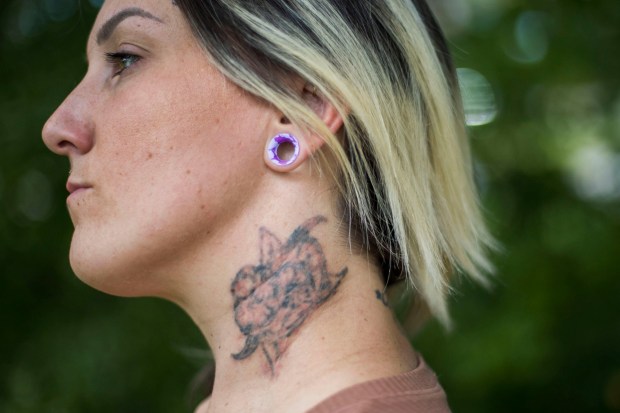
Despite that, one common concern brought up when state's explore vacatur policies is that people might try to game the system.
“There will be some people who try to lie, but this is not an easy thing to pursue,” Nehrig said.
In order to receive a writ of vacatur, a survivor has to submit a petition to the court and convince a judge. Nehrig said the first step is hiring an attorney to assemble the petition.
Petitions often include: a sworn affidavit from the survivor; a timeline of their life events; medical records; photos of any injuries they documented; letters of support from witnesses, therapists and case managers; court records or news articles that back up their statements; and any other materials that would help a judge review their situation.
The petitioner then meets with the local district attorney, who reviews the petition and adds on a statement sharing their support, objection or neutrality. Lastly, the petition goes before the judge who can grant or deny it.
Nehrig has also heard arguments that relief laws place an additional burden on the courts. She said survivors who can't successfully integrate back into the community are more likely to return to the violent world of trafficking — and that can get them killed.
“It does become a matter of life and death,” Nehrig said. “I don't think the idea of the system being busy is a good enough argument to deny people the relief they require.”
Norfolk Commonwealth's Attorney Ramin Fatehi agreed.
“It is not a burden to do that right thing,” said the prosecutor. “We have the courts to hash out disagreements over whether someone can meet that standard (of proof) but we shouldn't just slam the courthouse door.”
Fatehi said it's easy to see how a trafficking victim gets convicted.
“They come to court and lie because they are more afraid of their trafficker than the legal consequences of a conviction,” he said. “Frankly, I'm sure it has happened more than we would like to acknowledge.”
___
Virginia's first case
In July, Virginia Beach resident Olivia Reposa became the first person in the state to receive a writ of vacatur for her prostitution conviction under the new law.
The 32-year-old teared up when she read the judge's decision.
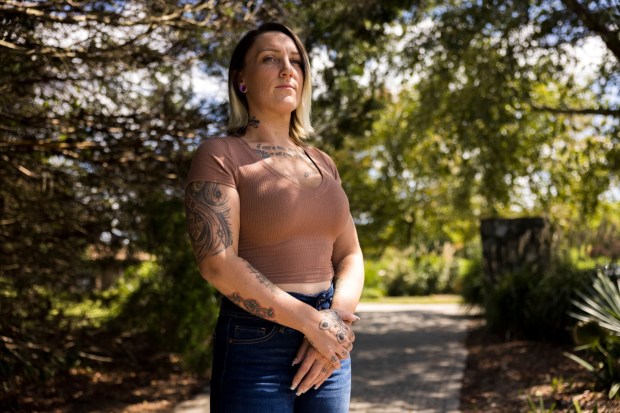
“To acknowledge that sometimes the criminal justice system makes mistakes and confuses victims with criminals, it felt like that was their way of saying they were sorry,” she said.
But Reposa still has several other convictions on her record, including grand larceny and a felony drug possession. It can be hard to live with the stigma.
“People think ‘once a junkie, always a junkie,' or ‘once a thief, always a thief,” she said. “It just sucks that it all happened while I was being trafficked.”
Reposa met her first trafficker online when she was a teenager in Massachusetts. They started a relationship and he quickly turned abusive, pressuring her to work as a stripper and taking the money she earned. When she turned down a customer who tried to pay her for sex, he was furious.
“He was like ‘I can't believe you didn't do it,'” Reposa said. “And then it turned to ‘you are going to do it next time.'”
Reposa said she sometimes drank alcohol as a teen but had never done hard drugs. But when he gave her heroin, she took it.
She wanted to leave but feared he would track her down and kill her. After he beat her up while she was pregnant to the point she required hospitalization, it dawned on her that she might die either way. She fled to Virginia and sought help at a shelter in Hampton Roads, but said she got kicked out when she couldn't find employment.
“I didn't really feel like I was good for anything else,” she said, explaining she returned to the world of trafficking with a degree of defeated acceptance.
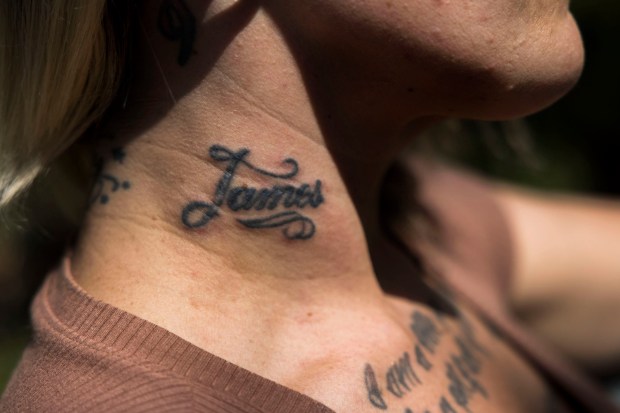
A trafficker in Virginia sold her at hotels in Norfolk and Chesapeake. He also wanted her to shoplift and hold drugs — and it wasn't long before she started getting caught.
Survivor Ventures, a Norfolk-based nonprofit, helped Reposa find an apartment and a job at a coffee shop in Chesapeake when she was released from prison in 2019. The organization offers a program matching trafficking survivors with local businesses open to hiring them.
Reposa later worked for the organization as an advocate before launching her own advocacy group, the Surviving Change Foundation, this year. She likes her job but wishes she had more options. She's thought about a career in the medical field but knows that door is closed. Some of her convictions are “barrier crimes” that prohibit work in industries like healthcare.
“I feel like the only good thing I can do is be someone who has expert advice (on trafficking),” Reposa said.
___
Aid for survivors
Reposa received assistance with her petition from a new clinic helping trafficking survivors at Regent University's Center for Global Justice in Virginia Beach.
The clinic selected Reposa as its first petitioner because she had a strong case, having testified against two of her traffickers who were facing federal charges, according to Meg Kelsey, the center's assistant director.
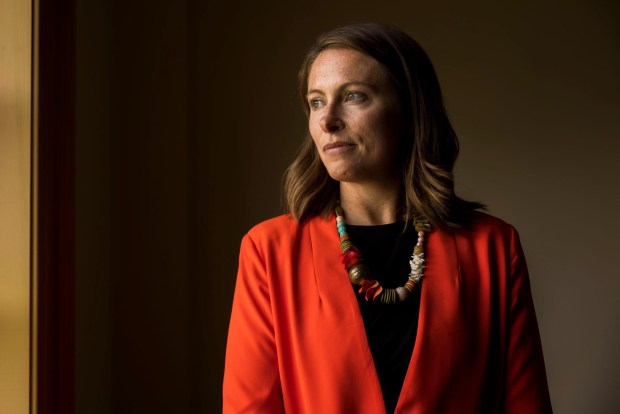
Kelsey, a former Virginia prosecutor, expects the clinic will submit about 10 petitions a month by the end of the year.
She understands concerns about people trying to exploit the vacatur law, and said she urges more in-depth discussions at the state level about how to prevent abuses. But she believes the current restrictions are nonsensical.
“We have this toe in the door saying that these victims did not have the legal intent to commit this crime (of prostitution),” Kelsey said. “Yet if they're committing fraud and larceny and drug crimes at the same time, somehow they did? It just doesn't make sense to have such narrow relief.”
When the state criminalizes survivors, Tiffany McGee, the founder of Survivor Ventures, argues that it's playing into traffickers' hands.
McGee, who previously worked with the U.S. Department of Defense on anti-trafficking task forces throughout Europe and East Africa, believes the reluctance to embrace expansive conviction relief stems from questions about why victims didn't escape or get help.
She said some don't report their trafficker because it's someone they love, like a parent or a boyfriend. Others don't trust authority figures because of their past experiences. McGee said women who've been trafficked have seen men from all walks of life — including attorneys, politicians and law enforcement — among the clientele.
“Sometimes the system that is supposed to protect them didn't just not protect them,” she said. “It hurt them more.”
___
Opportunity for change
The General Assembly is in a period of unusual upheaval. All seats are up for reelection in November and more than two dozen legislators announced this year they would not seek reelection.
Some see this as an opportunity.
“With the new turnover, we are going to have the opportunity for a lot more perspectives,” Delaney said.
If reelected, Delaney said she would consider introducing legislation to expand her earlier vacatur bill. Simonds said she would proudly serve as a co-sponsor again.
“I've been impressed by how much people care about this,” Simonds said, adding she receives comments from churches, women's groups and other constituents in Newport News.
McKenna said the coalition is cautiously optimistic.
“(Human trafficking) has been one of the governor's primary talking points,” he said. “So, we're hoping we are able to create a climate where we can have greater success.”
As for Holmes, her life is vastly better these days.
The Norfolk landlord agreed to give her a chance. Even now, three years later, talking about it still makes her cry.
“It saved my life,” said Holmes.
The 43-year-old said her life was once an endless cycle of drugs and abuse and violence she presumed would kill her. Today, she is happily married and working to repair her relationship with her two sons. She lives in Delaware and works as an advocate for Survivor Ventures' branch in Wilmington.
She loves spending time outside and finds comfort in nature, listening to the birds in her backyard or sitting by the sea. Despite her years of hell, she describes herself as an optimist and a people person.
But her record still haunts her.
“I want a clean record,” she said. “I want to see this done. Not just for me, but for all the other survivors to come.”
Katie King, [email protected]
This “Eyes on Trafficking” story is reprinted from its original online location.
Fair Use Notice: The PBJ Learning Knowledge Vault is dedicated to advancing understanding of various social justice issues, including human trafficking and related topics. Some of the material presented on this website may contain copyrighted material, the use of which has not always been specifically authorized by the copyright owner. We are making such material available in our efforts to promote education and awareness of these important issues. There is no other central database we are aware of, so we put this together for both historical and research purposes. Articles are categorized and tagged for ease of use. We believe that this constitutes a ‘fair use' of any such copyrighted material as provided for in section 107 of the US Copyright Law. In accordance with Title 17 U.S.C. Section 107, the material on this site is distributed without profit to those who have expressed a prior interest in receiving the included information for research and educational purposes. For more information on fair use, please visit: “17 U.S. Code § 107 – Limitations on exclusive rights” on Cornell Law School's Legal Information Institute.
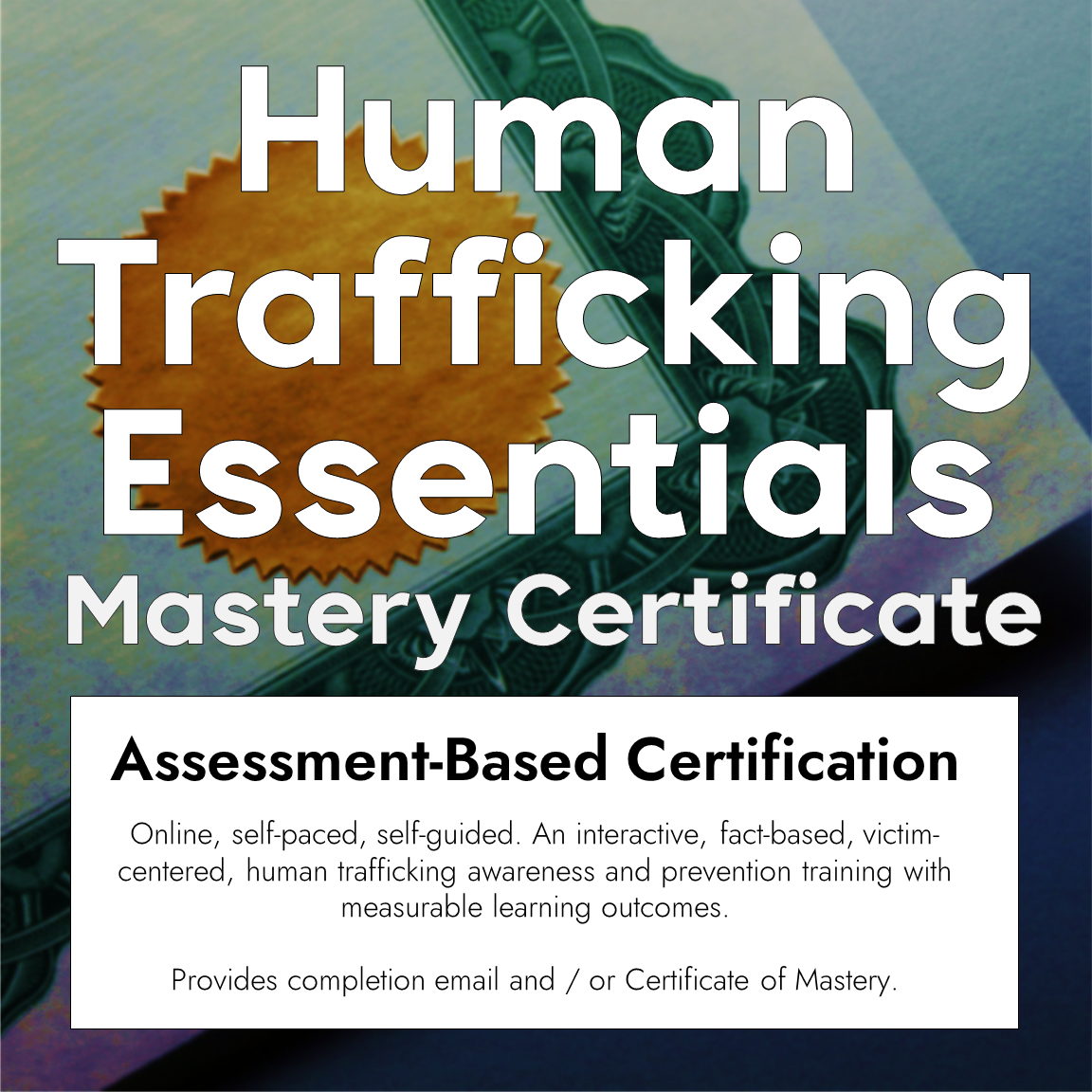
ABOUT PBJ LEARNING
PBJ Learning is a leading provider of online human trafficking training, focusing on awareness and prevention education. Their interactive Human Trafficking Essentials online course is used worldwide to educate professionals and individuals how to recognize human trafficking and how to respond to potential victims. Learn on any web browser (even your mobile phone) at any time.
More stories like this can be found in your PBJ Learning Knowledge Vault.
EYES ON TRAFFICKING
This “Eyes on Trafficking” story is reprinted from its original online location.
ABOUT PBJ LEARNING
PBJ Learning is a leading provider of online human trafficking training, focusing on awareness and prevention education. Their interactive Human Trafficking Essentials online course is used worldwide to educate professionals and individuals how to recognize human trafficking and how to respond to potential victims. Learn on any web browser (even your mobile phone) at any time.
More stories like this can be found in your PBJ Learning Knowledge Vault.

